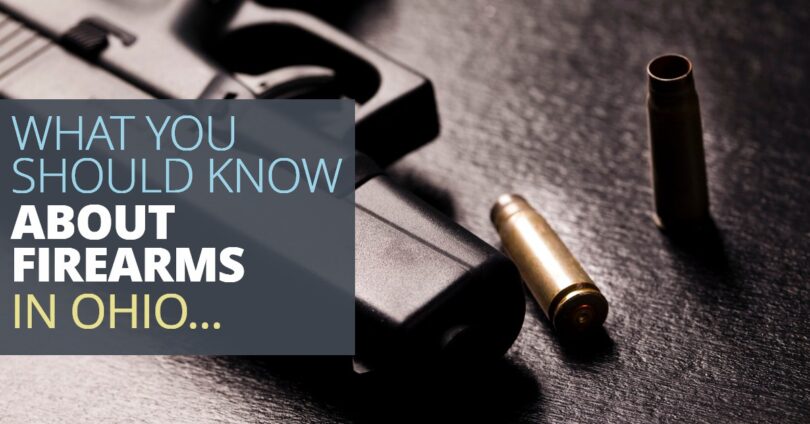Q: Must I register my firearms in Ohio?
A: Generally, no. The Ohio Revised Code does not require firearm registration, and prohibits municipalities from creating compulsory local firearm registries. You must register certain firearms and components that are federally regulated by the National Firearms Act, such as suppressors and automatic weapons, with the Bureau of Alcohol, Tobacco, Firearms and Explosives.
Q: Is “open carry” legal in Ohio?
A: Yes. However, a person may not openly carry a loaded firearm in a motor vehicle without a CHL. “Open carry” is also prohibited in certain places, such as corrections facilities and courthouses.
Q: Must the sheriff issue my concealed handgun license?
A: Yes, provided you qualify. The sheriff may not deny a CHL to a qualified applicant.
Q: Does my concealed handgun license allow me to carry other weapons?
A: No. Ohio issues a concealed handgun license, which applies only to handguns. Having such a license does not authorize you to carry other weapons.
Q: Can I carry a loaded, concealed handgun into a bar?
A: If you have a CHL, you may carry a concealed, loaded handgun in a bar as long as you do not consume alcohol, are not under the influence of alcohol, and the bar owner has not posted a message saying that concealed weapons are prohibited on the premises.
Q: How can I legally carry a handgun in a motor vehicle?
A: As long as you have a CHL, there are no restrictions on how you choose to carry a loaded handgun in a motor vehicle.
If you do not have a CHL, you may transport a firearm in a motor vehicle if it is unloaded and located in a closed package, box, bag or case, or in a compartment that can be reached only by leaving the vehicle (e.g., the trunk). Alternatively, you can transport an unloaded firearm in plain sight and secured in a rack or holder made for that purpose. “Unloaded” means there is no ammunition in the handgun (chambered or in an inserted magazine) and there is not a loaded magazine that is compatible with the gun that can be accessed without leaving the vehicle, or without opening a complete and separate enclosure from within the vehicle.
Q: I have a license to carry a concealed handgun. If I am pulled over while driving, must I tell the law enforcement officer that I am carrying a concealed handgun?
A: Yes. If you are stopped by a law enforcement officer, you must promptly notify the officer that you have a CHL, and that you are currently armed. You do not have to notify the officer, however, if you are not in possession of a handgun at the time the officer stops you. Your duty to notify extends to encounters with law enforcement even outside of a motor vehicle, as long as the stop is “for a law enforcement purpose.”
Q: Can I carry a concealed handgun into a private business?
A: If you have a CHL, Ohio law does not prohibit you from carrying a concealed handgun into a private business unless the business or property owner conspicuously posts a sign prohibiting weapons on the property. At this time, certain private businesses such as day care centers and mental health facilities are automatically off-limits.
Q: Can my landlord prohibit me from possessing and carrying a handgun in my apartment?
A: No. A residential landlord may not prohibit or restrict a tenant, or the tenant’s guests while the tenant is present, from lawfully carrying or possessing a handgun on residential premises.
Q: Can my employer prohibit concealed carry on company property?
A: Yes. Private employers are permitted, but not required, to exclude weapons from company property, including parking lots. Employees who disobey such restrictions may be subject to discipline, including termination, and may be sued. However, if you violate a “no weapons” sign on a private parking facility in Ohio, it is no longer a criminal offense.
Article references:
www.ohiobar.org/ForPublic/Resources/LawYouCanUse/Pages/What-You-Should-Know-about-Firearms-in-Ohio.aspx

